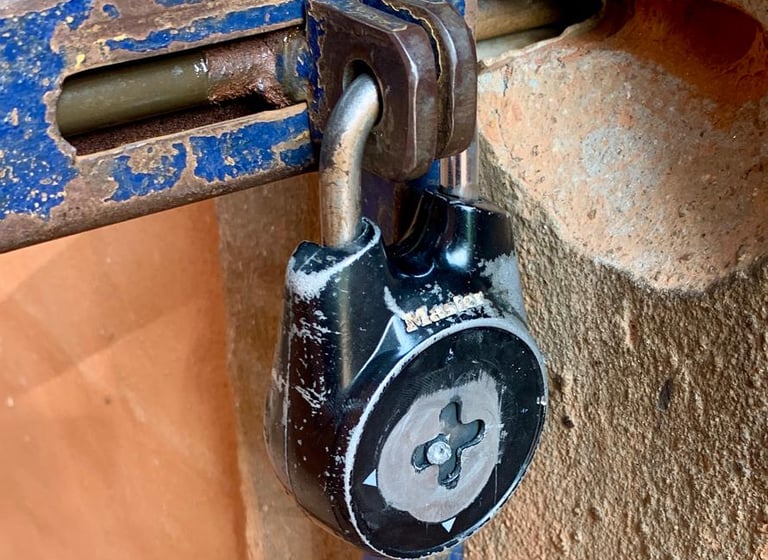Who are our teachers?
An ode to a lock
11/10/20242 min read


This simple combination lock kept our community bicycles, scooters, and motorbikes safe for over eight years—until this week, when it finally broke. Just a simple lock, and yet it taught us so much. It was notoriously fickle and many times difficult to open. Visitors and new residents often complained that it didn’t work properly and should be replaced. But others, who had known the lock since the beginning and developed a fondness for its character, would say, "You just need to be calm and focused, and it will work." And they were right! Perhaps not helpful when you're in a hurry or out in the heavy rain, feeling neither calm nor focused, but nevertheless, if you wanted your bike, you had no choice but to stop, take a breath, and be present in the moment to open the bike shed gate.
Now that this lock is gone and we've replaced it with a shiny new, compliant one, I find myself missing the daily interaction with my Zen-teacher lock.
In Shamanic practice, animism is a core belief, the acknowledgment that everything has consciousness. Not just things that are "alive" or "natural" like trees, animals, waterfalls, and mountains, but everything—including objects such as a simple lock. Where we often balk at this idea is when we imagine the consciousness of inanimate objects as they are portrayed in Disney movies (a talking teapot, for example) and we can’t accept that as reality. We fail to realise that not all consciousness is human consciousness, and there are other forms of awareness and interaction around us that we may not yet be able to comprehend from our limited viewpoint. We tend to either anthropomorphize objects or dismiss them altogether. But what if there’s another way of looking at it?
We all have objects that are meaningful to us—objects we interact with differently, that make us feel a certain way, or that we've developed a relationship with somehow. What do they teach us? How would our world be shaped differently if we saw objects as having value beyond their basic form? Perhaps we would be less wasteful and learn to take a few more breaths as we open locks.